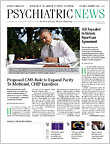The past three decades of neuroscience research have brought unprecedented growth in our understanding of the human brain. Although this continues to form a growing evidence base for the field of psychiatry, most of these discoveries have not yet been translated for use in clinical care. The current practice of psychiatry depends predominantly on clinical observation and decision making, which is inherently subjective and results in much variation between providers. While other areas of medicine benefit from the regular use of basic standard tests, such as blood pressure and glucose measurements that are integrated into everyday clinical practice, psychiatry lacks this consistent reliance on objective measurement.
Although the field of psychiatry does not yet have biomarkers or imaging data that can reliably guide clinical decisions, there are various clinical tools that have proven effective in improving treatment and outcomes.
Measurement-based care, a system of consistent evaluation and treatment based on the use of rating scales and treatment algorithms, is one such approach. Rating scales are recommended by APA practice guidelines for major depression, schizophrenia, posttraumatic stress disorder, panic disorder, and obsessive-compulsive disorder. A 2006 report by the Institute of Medicine also recommended the routine use of rating scales to improve the quality of treatment for mental health and substance use conditions. Major studies like the Clinical Antipsychotic Trials of Intervention Effectiveness (CATIE) and Sequenced Treatment Alternatives to Relieve Depression (STAR*D) used routine measurements to inform treatment decisions. In a January 2006 report in the American Journal of Psychiatry, Trivedi and colleagues indicated that this structured approach could be responsible for improved outcomes in depression treatment.
Despite the recommendations and evidence, many practitioners do not regularly use these measures. This creates a quality problem that has proven difficult to solve. Reasons for lack of use of such measures vary from unawareness of evidence of their benefits to practical concerns about implementation or effect on the therapeutic relationship.
However, it could be argued that many practitioners never developed familiarity with measurement-based care during their residency training. Although both the Accreditation Council for Graduate Medical Education Psychiatry Residency Program Requirements and the Psychiatry Milestone Project encourage the systematic use of assessment and quality-improvement modalities in residency training, there are no specific requirements that evaluate training in the use of measurement-based care.
DSM-5, published in 2013, was the first edition of that diagnostic manual to include the use of cross-cutting measures and measurement-based care, a move likely demonstrating the evidence for and importance of increasing their use.
An article in the August 2011 Journal of Clinical Psychiatry by Harding and colleagues introduced a policy-implementation plan that encouraged further training with these interventions in psychiatry residency; however, this aspect has not received widespread adoption in residency programs. Residents would do well to familiarize themselves with measurement-based interventions, and training programs would better prepare their residents for the future of evidence-based psychiatry by including instruction in and regular use of measurement-based care.
In an article in the September 2013 Academic Psychiatry, Arbuckle and colleagues reported that adoption of a residency curriculum with measurement-based-care resulted in 92 percent use of a measure for depression screening, as well as 76 percent use for monthly monitoring of outpatients in a residency clinic. Studies such as this demonstrate the feasibility of integrating measurement-based care into residency training.
Additionally, the adoption of measurement-based care in residency training might influence practitioners’ openness to future discoveries and the more rapid adoption of new evidence-based interventions as they become available. Given the evidence behind measurement-based care and the changing landscape of psychiatric practice, both residents and their patients stand to benefit from increased use of these tools in residency training. ■

